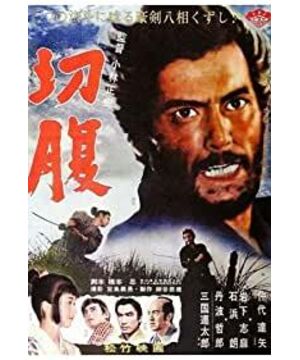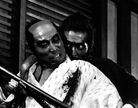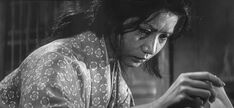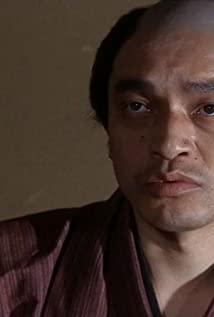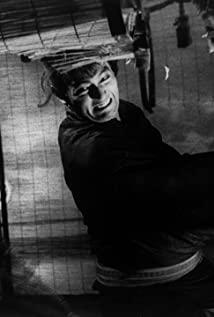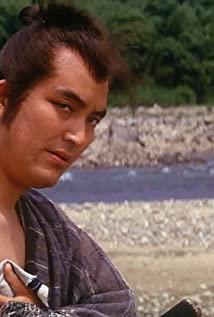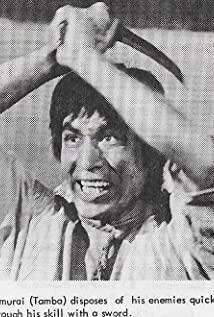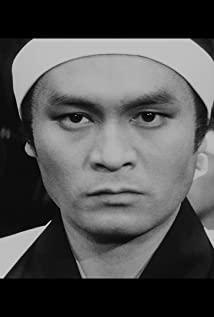This film is 2 hours and 20 minutes. Even though it's black and white, it's so gorgeous. Like the 1954 "The Great Road", it is all about the tragedy of an era. These two are the most emotional black and white films so far.
Cut the belly, the background of the era is set in the rule of the shogunate, the centralized power is centralized, and the fiefs of various places are banned. In fact, it is the same as the cutting down of vassals in ancient China. Instead, the samurai who were supported by the fiefs at that time became unemployed and became ronin. The cruel reality made the idle ronin often go to the princes' homes, expressing their intention to commit suicide, and the princes who were weakened and unable to recruit more ronin had to send them away with money, so this became a popular method of extortion at that time. This is a form of humiliation to honor the spirit of Bushido. And as a noble family, you can't always use your spare money to send more and more ronin visiting by the same means. You can only do it according to the plan, and let these ronin, who threaten to cut the abdomen, carry out the cut of the abdomen.
Qian Qianyan begging for a daughter, born in this era, is doomed to tragedy. His father was a prince who had been cut off from shame. The family fell and lived with Jinyun Niushiro (former retainer). He was struggling to make a living: his wife was sick, his son was dying of a high fever, and there was no money at home. He tried his best, but he still couldn't pay for his son's medical treatment. Run to the prince's house and ask for money in the same way. The tragic was asked to cut his abdomen. But when he cut his abdomen, he asked again and again, and he was allowed to cut his abdomen for a day or two. But these people who don't know the inside story feel very ashamed to see Qian Qianyan's shoddy and cowardly behavior of begging for a daughter. Force him to die. A samurai is most loyal by keeping his word. He was tragically cut off. Then his behavior was widely circulated in the samurai world and the ronin world. Fixed frame as weak, insulting the spirit of Bushido. Until his father-in-law came to Yichuan's house within a week after his death and asked for abdominal incision. He explained why.
This Jinyun Niushiro is not an ordinary warrior, an extraordinary poor ronin. He first asked the three members of the Yichuan family, Yafaya, Kawabe, and Hikokuro, as his assistants for cutting the belly. But it just so happens that these three people have been sick all the time. Later, before his death, he told about his life, how Qian Qianyan asked her daughter to live for the sake of her family, and how she worked hard. It was revealed why Qian Qianyan used a bamboo sword when she was forced to cut her belly when she was begging for a daughter. In Bushido at that time, the sword was not separated from the body, which was a symbol of the status of the samurai. It turned out that Qian Qianyan was begging for a daughter, and in order to heal his sick wife, he mortgaged his sword for money. This is a touching story. He apologized to "my so-called ignorance, let me hold on to those useless symbols." If it weren't for the time when there was nothing else to do, who would sell the sword, the sword shell is still there, the sword has no shadow, but the bamboo.
The father-in-law was angry and said that he was not afraid of death, and that he would be cut to the stomach for sure. But he couldn't just cut his belly like that. He can't go to see his daughter, grandson, and Qian Qianyan's daughter empty-handed. In the tense atmosphere, he appeased the retainers of the Yichuan family. He threw out the hair of Yafaya, Kawabe, and Hikuro (the most courageous samurai of the Ikawa family at that time, and the three people who were famous in the outside world). Successfully proved his superb martial arts. At that time, it was respected: if you lose your head, you will lose your head. These so-called warriors are still wheezing and sick at home, waiting to leave. . The spirit of Bushido has disappeared from these warriors. Jinyun Niushiro, satirized "the flaws of the Yichuan family government". So he got angry with Yichuan and started a one-to-many, one-to-many battle. The ending was unexpectedly outnumbered. This skilled ronin could not escape death. At the end of his furious battle, he falls down at the beginning of the film, a symbol of the Bushido spirit that the Yichuan family honored. And successfully ended his own life in the highest form of samurai: cut belly. In fact, it was half incision, half shot by those retainers with pistols. Under the siege of that kind of crowd, he cut his belly. It did not fall under the hands of Yichuan retainers. He inherited the venerable samurai spirit all over, but at the end fell the spirit of Bushido. This is great irony. In the turbid dust, who can distinguish who is who.
Yi Chuan's strength lies in his handling of the ronin's death. He ordered the three samurai who had lost their samurai dignity and were brought up by sickness to cut their abdomens. If they do not cut their stomachs, they will be killed. Maintain the discipline of this shogunate. Externally, he claimed that "Ronin Jinyun Niushiro died of abdominal cutting. Yichuan retainer died of illness." A line he said to the minister who carried out the order made me understand a lot. "You know, the workings of the administration . . . what you don't understand are the implications." Thinking about the current domestic situation, this is not how events are handled.
This is a great movie.
View more about Hara-Kiri reviews


